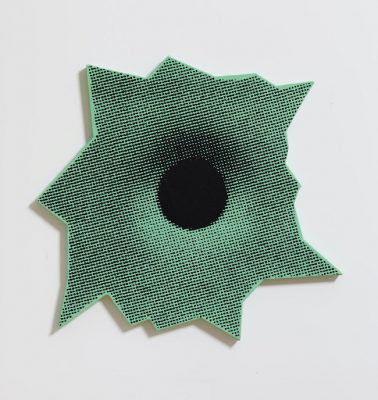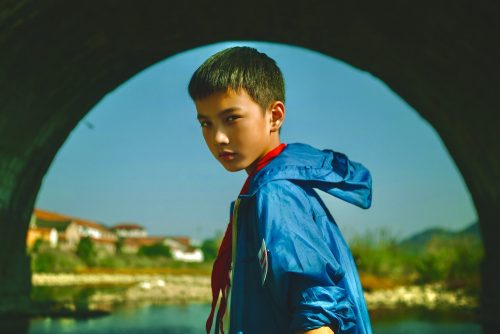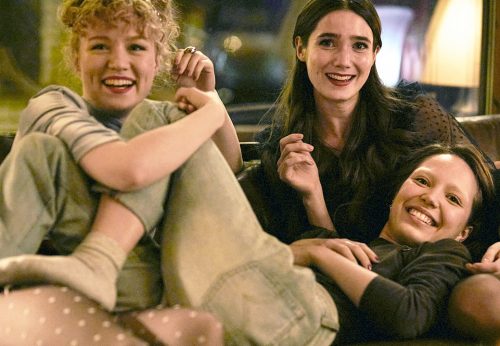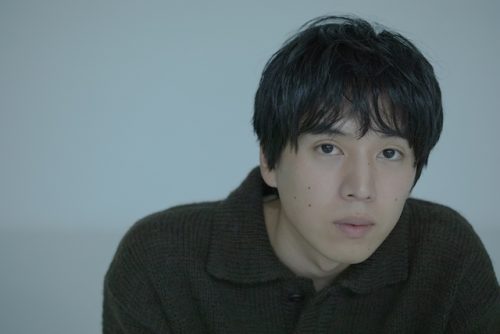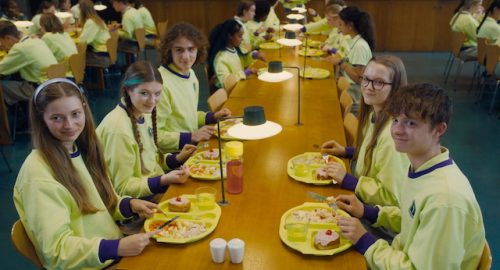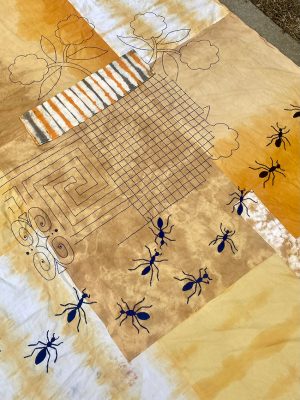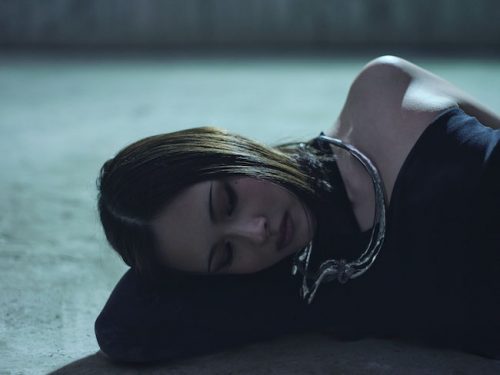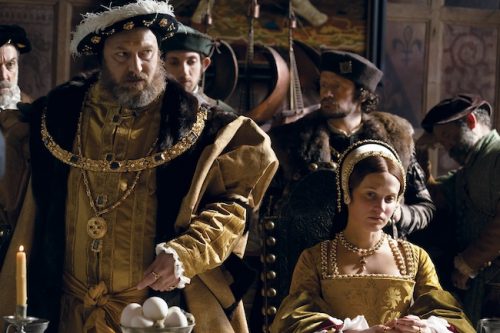
――You mentioned that you think of this movie as a science fiction film and that it is about an investigation of memory. How did you come to this idea, and what is the fundamental logic for your narrative that involves two groups of people, one from the past and one from the future, in search of something in the same place?
Sheng: I was inspired by a place in Hangzhou for the plot of this film. There is an attraction in Hangzhou, the Imperial Street of the Southern Song Dynasty. At the bottom of that street was a road that the emperor of the Southern Song Dynasty used to exit the city. And from that street, digging down from the surface of this modern season, you can see the streets of the Qing Dynasty, the streets of Yuan Dynasty, and the streets of Song Dynasty, they are all stacked on top of each other. Then this gave me the inspiration to say that the past and the present seem to co-exist, that they exist in parallel, so I constructed a time and space in which the children and the adults in this time and space are in parallel. I have that part of the intersection between each other, but it is a parallel structure. Why is it a science fiction film? Because I think the relationship between the two parts of space-time seems to be a quantum entanglement relationship. That is, a small change in my space-time will cause a change in the linkage of the other space-time, for example, when adults accidentally fall and dropped the telescope, that telescope will be picked up by the children. Then, the telescope seems to have led to a kind of spying and suspicion between the children. That’s the source of my idea.
――You say that this is a kind of excavation of memory, and in the process of excavation, it will also form a kind of interference with reality. In essence, the film is a kind of constant observation, including your design of these objects, like telescopes and mirrors, which are all observation tools, reflecting a mysterious interaction between the past and the future. What difficulties did you encounter during the shooting process to illustrate such mysterious sensations of time and space?
Sheng: Well, yes, in fact, they are connected to each other like two sides of the same thing. In the process of writing the script, I had to build up little by little. For example, the telescope part was based on my own experience in picking up a telescope when I was looking at the scenery. And that telescope gave me a lot of inspiration. Then I thought of connecting two different times and space through the telescope. The telescope was actually a tunnel, and I was able to connect two worlds at the end of the telescope. Some of the inspiration came from some news, for example, Hangzhou had been building a subway station for a while, and during the construction time, they dug out some interesting things, such as some objects from past ruins, and caused a groundwater leakage and other accidents. This news is also some of my sources of inspiration.
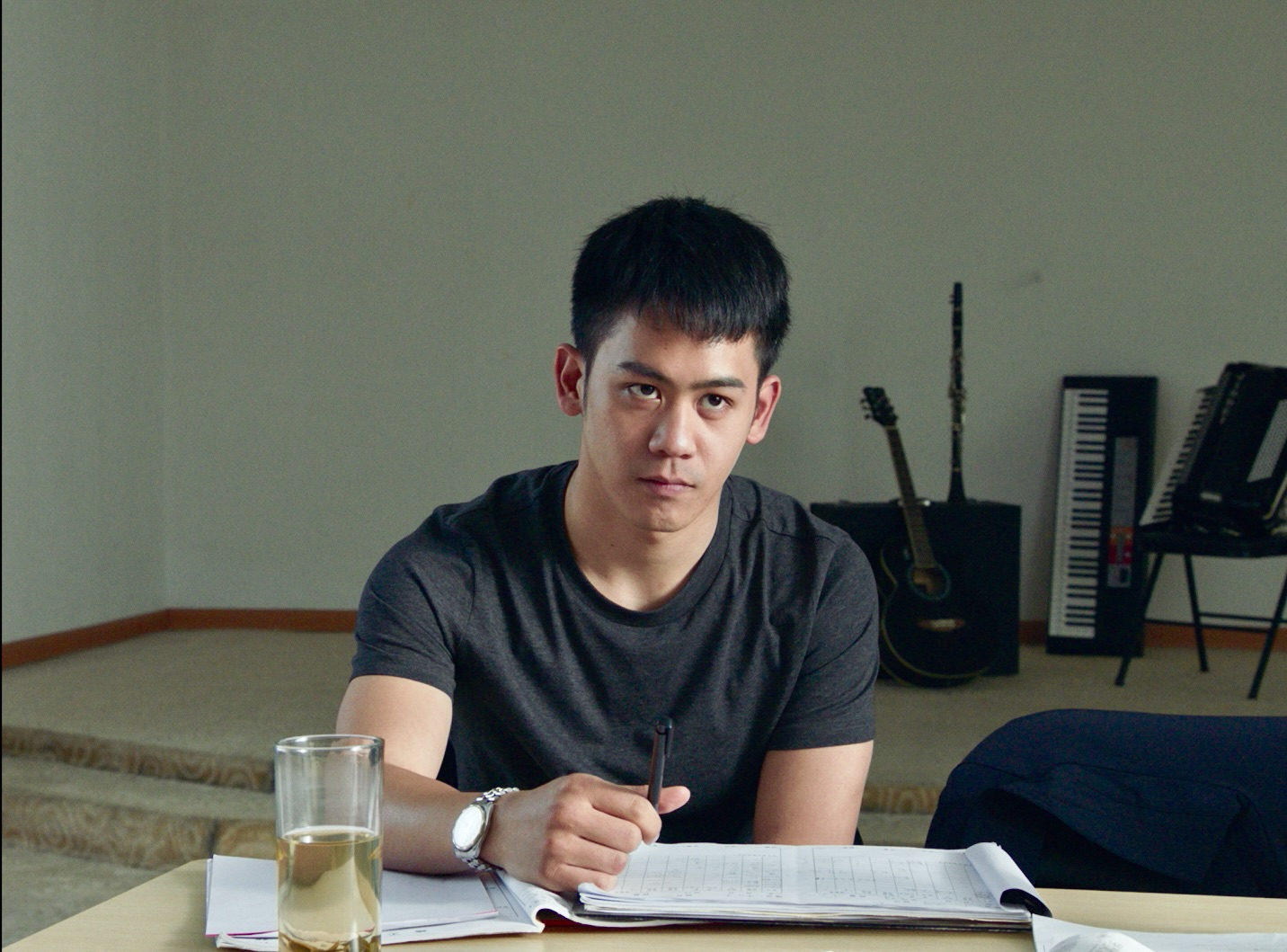
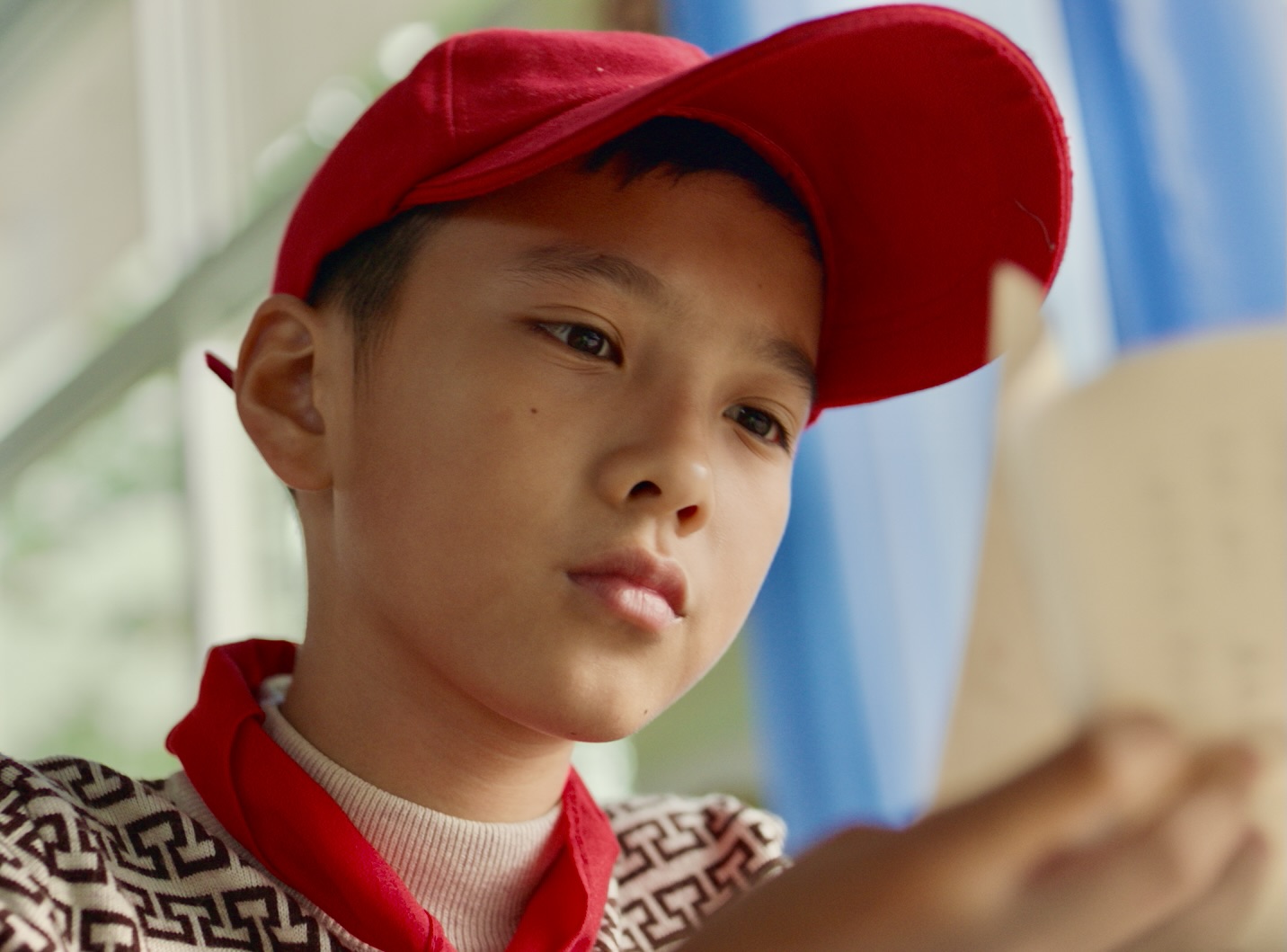
――Was this randomness, this fragmentation part of your plan from the beginning? Or was it something that you kept putting together during the shooting process? What is your idea of making an experimental film like that in which the envision is always being crafted as you go along?
Sheng: I think to a certain extent, all films are documentaries, a record of emotional and psychological changes in the process of creation. So, I was open-minded at that time. I put in all the messages and inspirations I received in the process. Of course, at that time, I was also more daring. It was my first film and there were no restrictions. I just put all the fresh ideas into it. I think of the characters as groups are also like a small team or a film crew. They went to do that investigation like film shooting.
―― What are some surprises that happened while you were shooting?
Sheng: In fact, there is a lot of improvisation and a lot of surprises in the process. For example, there is a shot in the film is when they are under the bridge, and there is light reflected from the mirror side of a train. In that shot, I let the crew put the mirror on that side to reflect light onto the opposite side of the railway, and then we shot a dozen shots but they all failed. But in the last one, suddenly, when I shouted “action”, a train was just passing, and we had the perfect shot of the reflection. At that moment, it feels like a godsend message from heaven. As if you have everything ready, waiting for a miracle to come, and then a miracle came. This is the feeling.
――That is wonderful. I am also wondering how you communicate with the actors. How do you guide them in bringing out the intrinsic feelings in their performances?
Sheng: Communication with the actor is sometimes like playing a game. You give them some challenging goals using the right language. They will then give out a performance you have not seen before. Because if you just give them instructions in cliche words like “happy”, “angry”, or “sad”, they may have done it a thousand times, and may not be able to make that happen in a new scene. I remember clearly, shooting the main character’s birthday scene when he saw the cake, there are very complex emotions within him. One of the things I said to him at the time was, “when you stare at the candle on the cake, act as if it’s like seeing fire for the first time in your life.” I used a metaphor to tell him the essence of the feeling because I think words like “joy” or “sadness” is not specific enough to be performed.
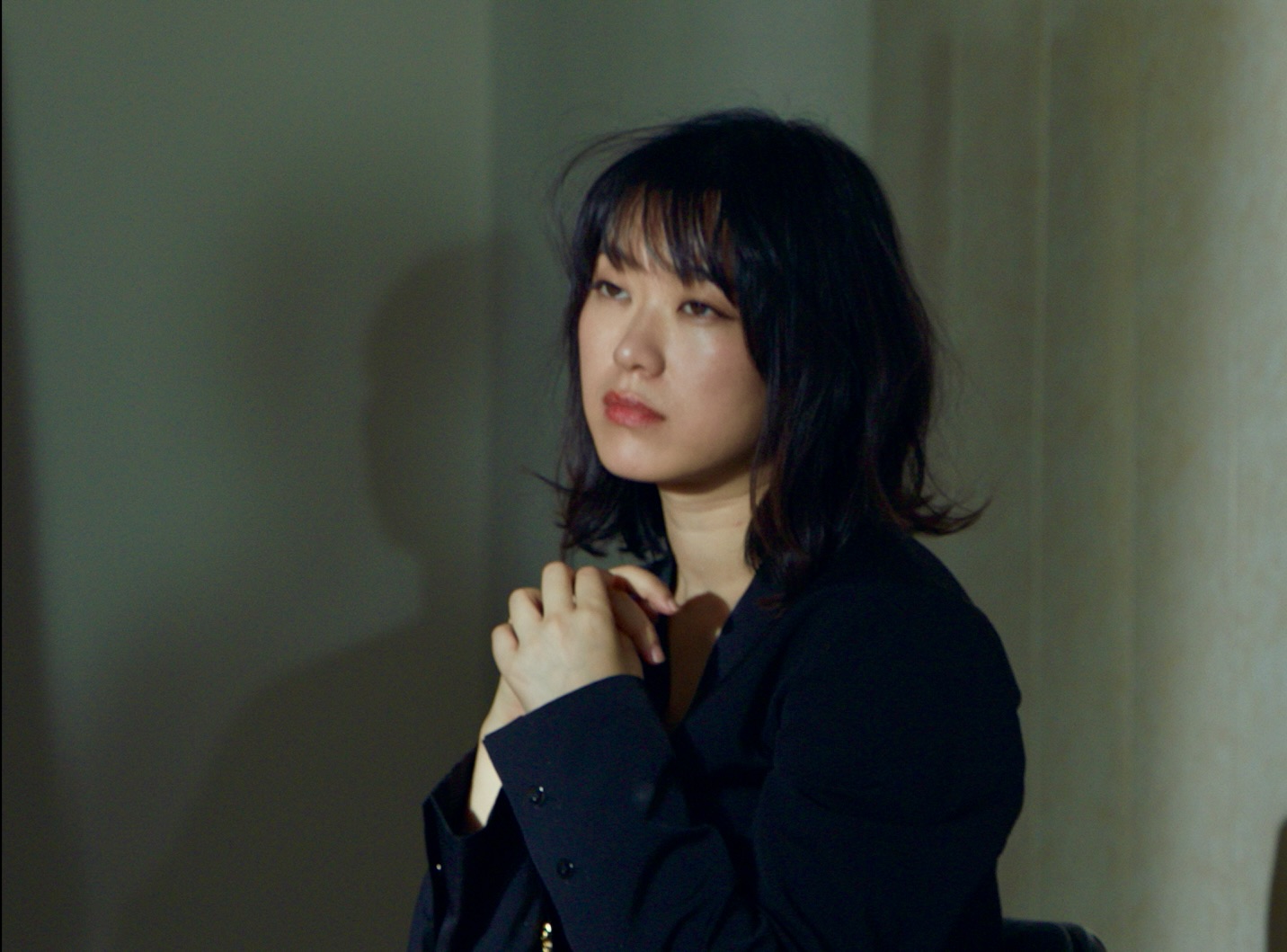
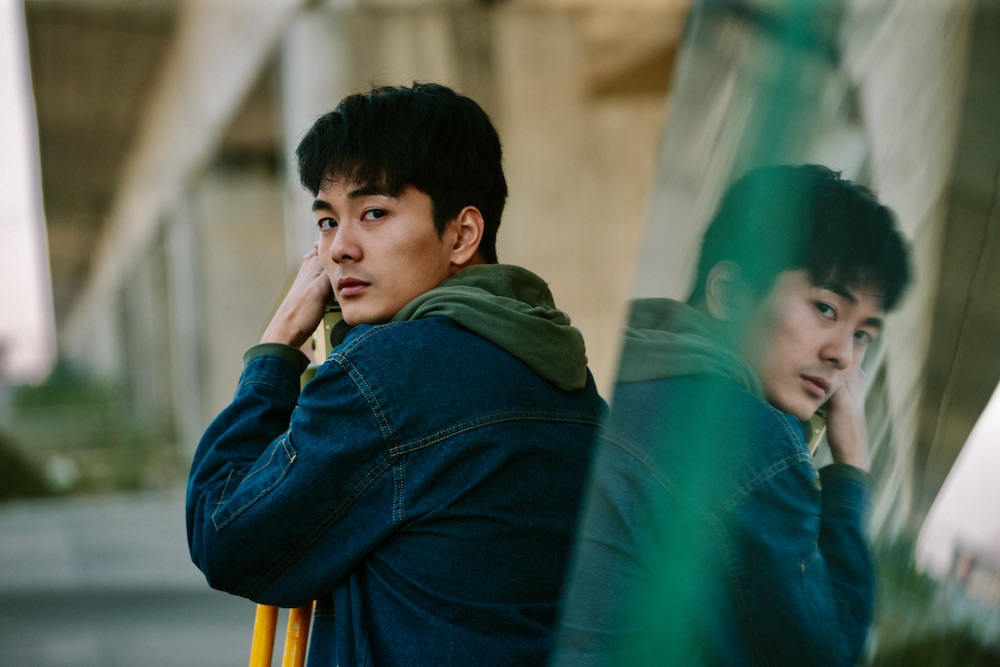
―― It seems like the use of language is crucial to your creation. Even the use of dialectic language in this film. Can you share more about your thoughts on that?
Sheng: I think first of all, my language is in the script as the preliminary communication, I think the language must be accurate. It has to be through accurate language for the film to be able to achieve a kind of communication that is more precise and to be able to achieve the effect of my shooting. The cinematic language is the role of dialogue in the film. I’m skeptical. I don’t think the dialogue in a film is like the dialogue in a play. It’s through the beauty of the language, or the literary nature of the language, I think it’s more of a dialogue. In the film, the tone of voice, the intonation, and the intensity of the voice express something. So, in directing the actors’ dialogues, I may be more concerned about his voice, intonation, and these things, using dialect is also a means. That is, when these actors speak in a dialect they are not familiar with, they pay less attention to the word, and what the word means, but to a kind of emotion and intonation that is closer to the feeling.
――And what made you decide on the title of the movie? The “Suburban Birds” has a sense of power dynamic in the words themselves. It makes me think about the expansion of the city and the decay of the suburban area in contrast. What is the meaning of the title for you?
Sheng: Yes, on one hand, as you said, it’s the suburbs, it’s kind of the middle ground. Something that is not a bird in the city, and not a bird in the wild. It is a kind of state that has no space for advance or retreat, and it does not find its own position. The bird of the suburbs has a little bit of awkwardness in its literary sense if we think of a trace of modern Chinese vernacular. I wanted to use this slightly larger unfamiliar meaning of the words as the title of the film.
―― There is a very strong sense of strangeness in the film, for example, the actor is kind of unfamiliar with the environment, that is, similar to a sense of discomfort, but he also brings a sense of exploration or curiosity. I think this title is more in line with that. How did you come to the accomplishment of that?
Sheng: I think my decision of choosing Mason Chun Lee is quite important. I took advantage of his unfamiliarity with this environment. Because Chun Lee grew up in the United States, and he was not very familiar with China. When I first met him, we met in Beijing, I could feel that he was a little bit unfamiliar and curious about his surroundings. He was also not familiar with Hangzhou, so he looked at everything in Hangzhou with a curious and unfamiliar perspective, so I also took advantage of this feeling. The other thing is that we chose several actors, and their backgrounds are very different. Some of them may have been in the industry for many years, and then acted in a more usual way. There is also a new actor who does not have much experience in acting. In the performance, these people were put together, and it created this kind of distance and the beauty of awkwardness.
―― What is the most difficult thing you have done during the process of shooting?
Sheng: We spent a total of 38 days shooting this film, the time schedule was very tight, and we had to shoot four to five scenes a day, we encountered a relatively large problem in the use of the lens. We had to have some mastery of the rhythm of the zoom lens, and we failed multiple times. Then we were able to slowly adapt. And I remember another difficulty that was caused by a more external factor. There was a scene in the subway tunnel, but the tunnel was still under construction. The tunnel was blocked by a gigantic piece of hard rock and we couldn’t proceed because of that. Then this time our shooting was almost over. We were very anxious. And on the last day of our shooting, the tunnel was dug through, and then we immediately went in to shoot the tunnel. That was like another miracle.
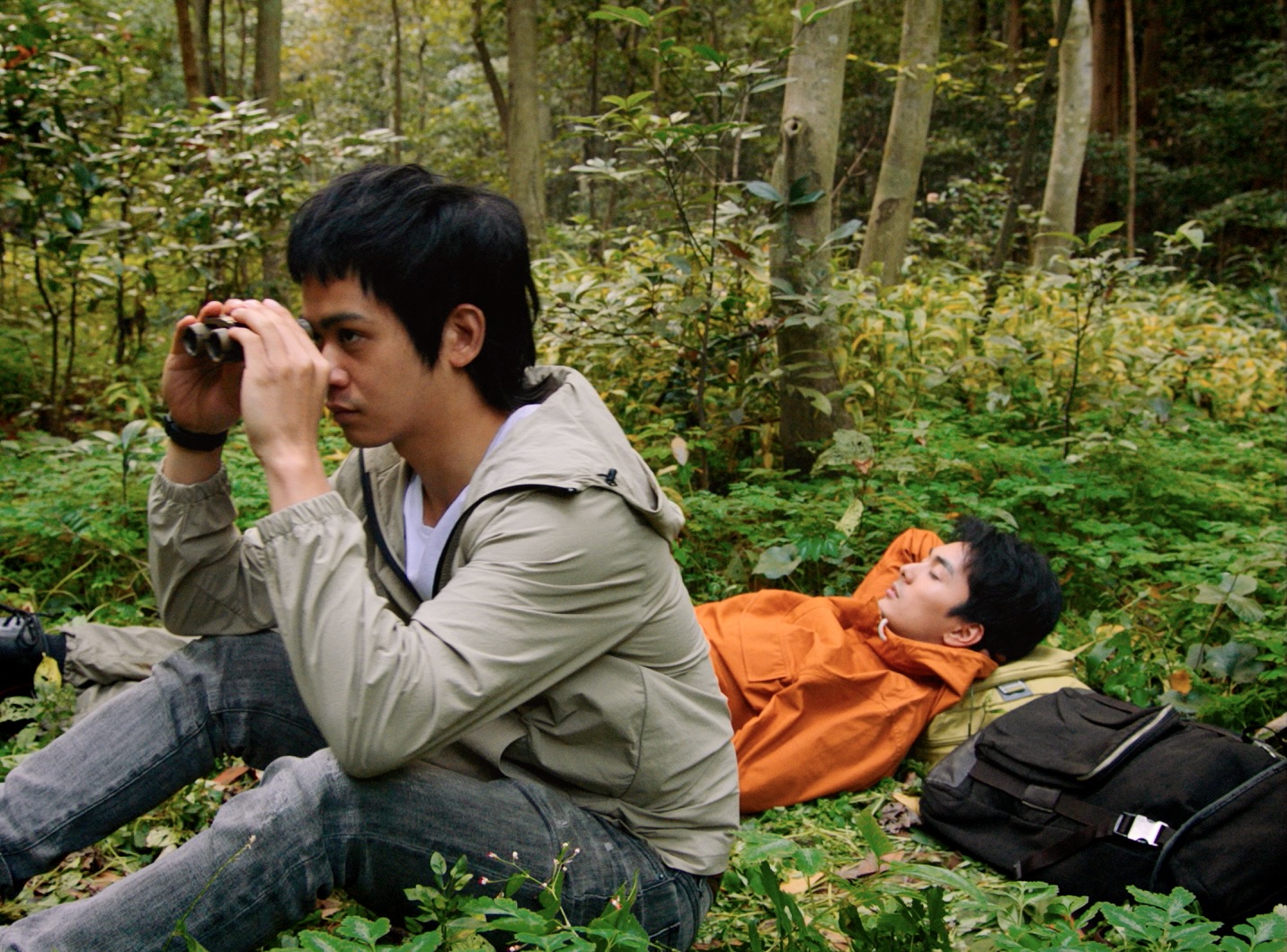
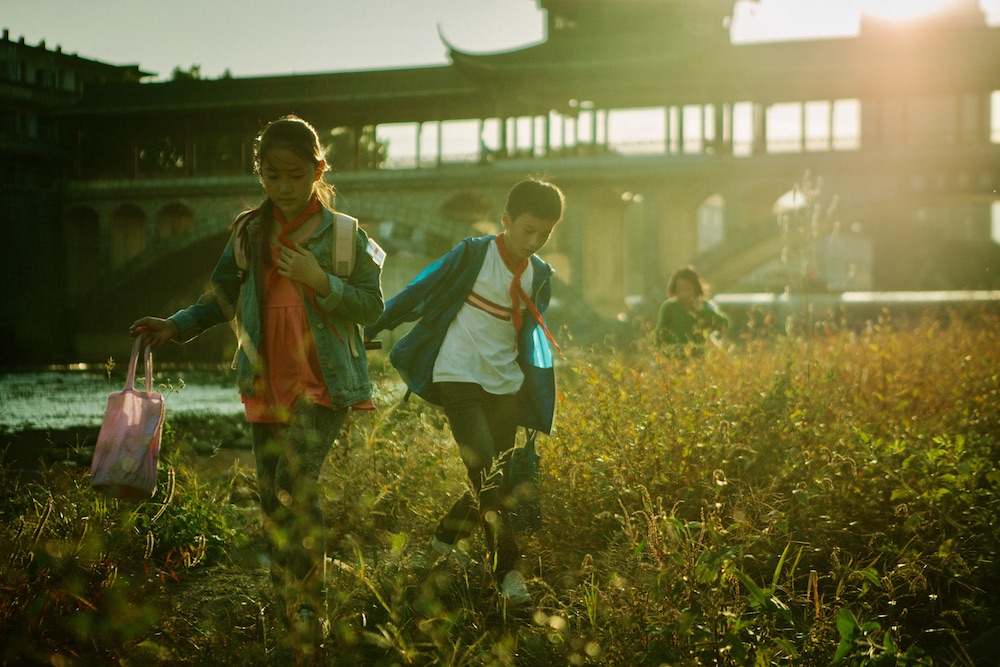
―― Another hard question on the making of the film. When you were investigating your memories, because making a film is the action of focusing the camera on one particular reality, and then making an observation or investigation of it, do you feel that living through that experience is similar to a documentary film? What is the new experience you had in the creation of this film? When you put yourself in such a strange perspective, did you feel a sense of fear and disconnection from reality? For example, when you are staring into the abyss, the abyss is also staring at you. What kind of emotion do you feel when you are doing an investigation of your memories?
Sheng: It does have this feeling of a story within a story as if our shooting itself is a dramatic event. Like you just said. In fact, when I started to investigate the memories, I didn’t make any predetermined conclusions. But through the writing and shooting of the script, I found that the protagonist, as my avatar, is guilty of the disappearance of his childhood friend. Or maybe he is one of the murderers. I think the whole action of my film is a kind of compensation or a kind of redemption. The last part of my film is more of an attempt at redemption, that is, the two men are back in the woods, speaking in dialect, and trying to get the bird back. There is an attempt to recover the lost thing. This investigation of memories eventually becomes a kind of reconciliation. I first saw this image in my intuition, but I didn’t know what it meant at first. Then when I had the cinematic shot, I felt more clearly that it did seem to be a kind of redemption.
―― Continuing on what you are saying, I would like to ask you about how the visuals and the cinematic language have an impact on your understanding of your script. Do you get to have a deeper and new understanding of what you wanted to express and communicate with the audience when you translate and transform your thoughts into moving images/films?
Sheng: Yes. Visuals have a strong impact on my understanding and my creation. For example, when I first wrote about a group of children in the woods, they used this red scarf to tie up the tree branches, and then I found that the long pole itself had a sense of beauty in it. This long pole seems to be the unveiling of the pole, like a peasant uprising. The unveiling of a flag. So I would shoot with a camera to follow the process of marching. I think the pole seems to mean that they seem to unite together to do something almost heroic. Many of the props I think are designed as if they are a pipe that is used to connect the past with the future. And the candle is similar to a kind of light in memory, that is to say, used to illuminate something that is not normally visible.
―― By looking at the past and the future in this way, were you looking for an answer or a solution? Did you come to a reconciliation with yourself in the process? How did this film impact you in your life?
Sheng: For me, it was a process of discovery and redemption. Film for me is a tool for observation and a tool for healing. For me, it is a particularly important presence. Making a film creates a universe that is parallel to reality. Film and reality are not in the same orbit, but the relationship between them may be like the relationship between adults and children in my films. They are connected to each other, and then I can gain a lot of new insights about the real world or some new inspirations in the world of film.
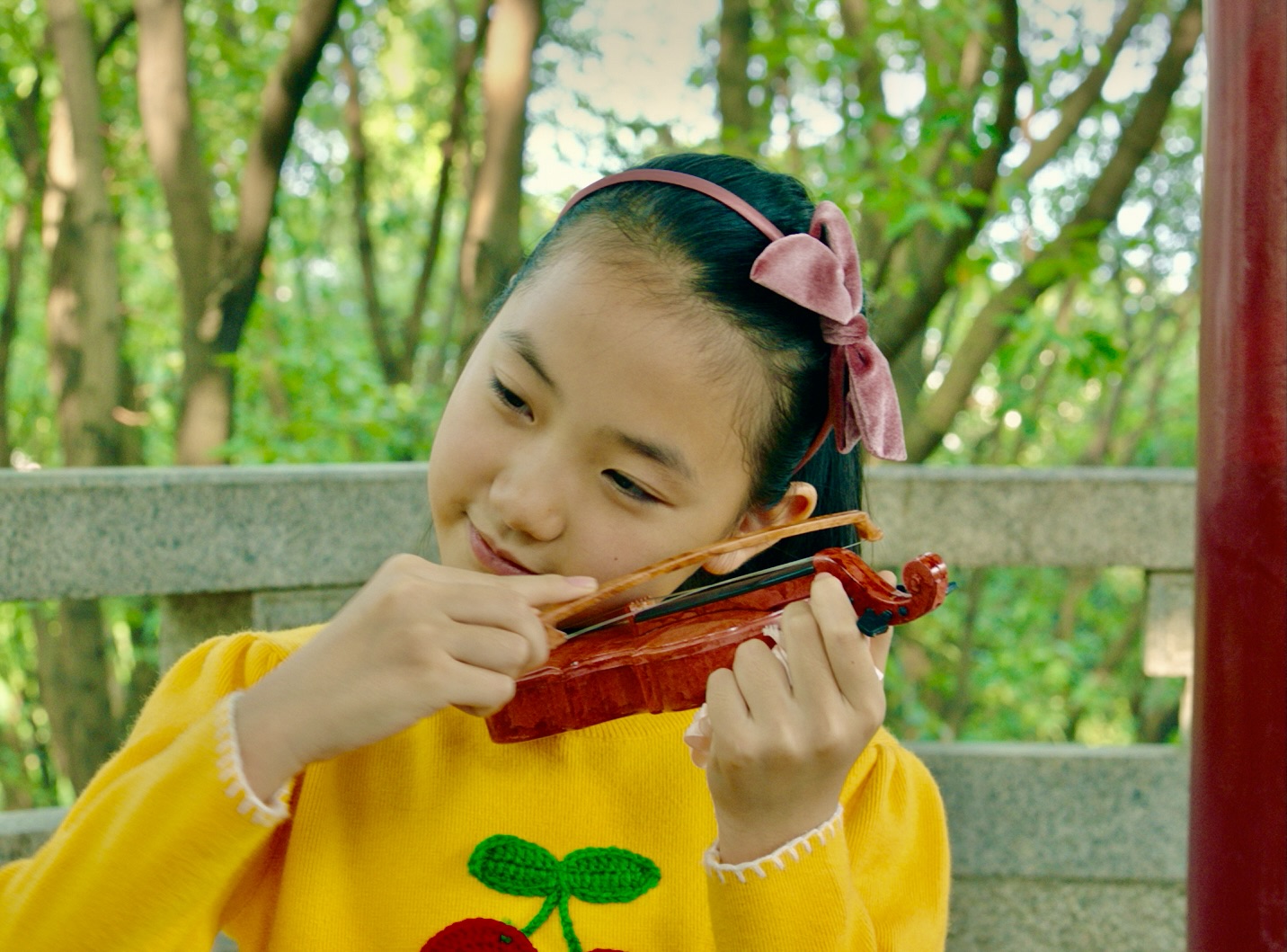
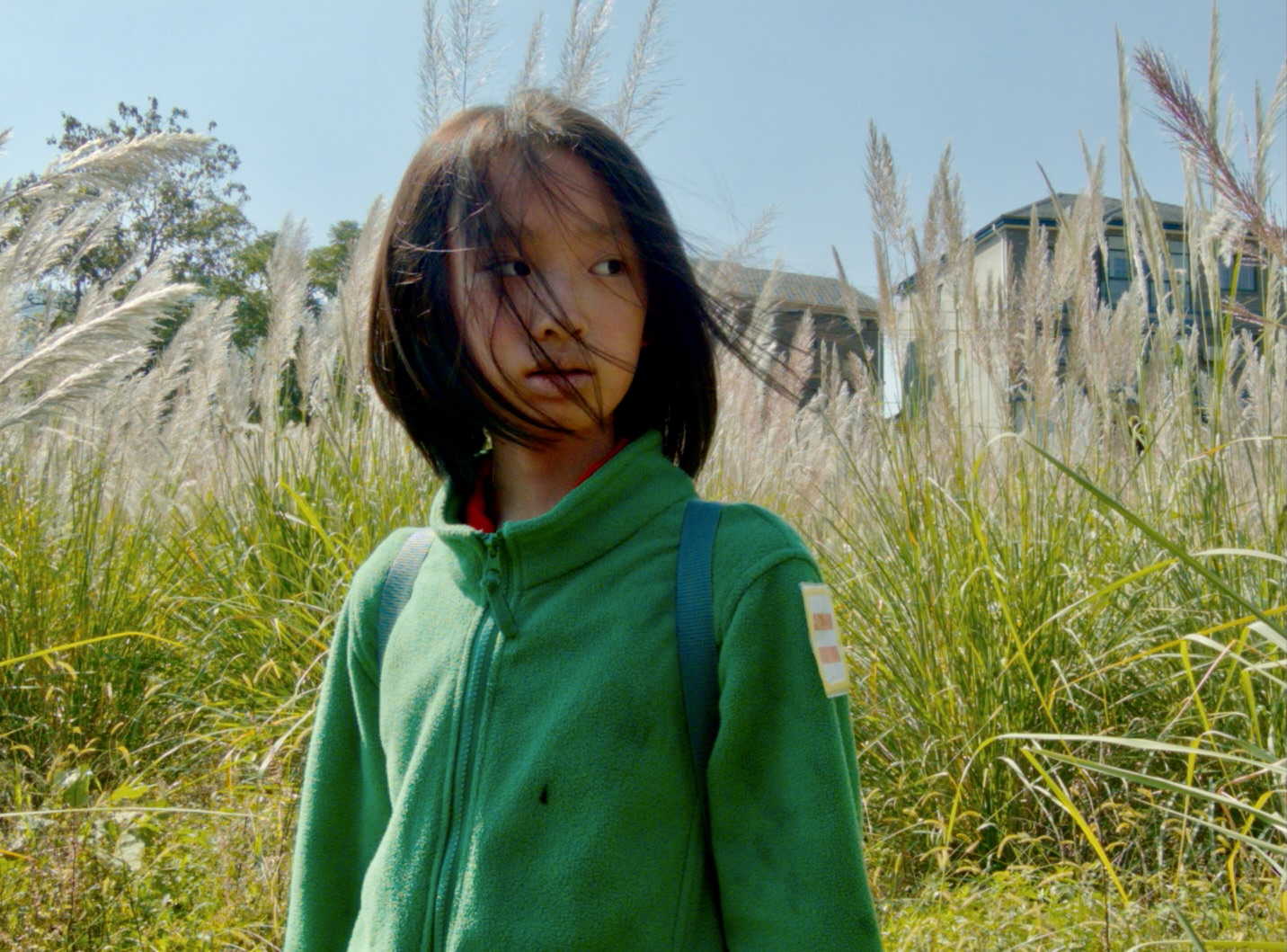
―― Your film has been shown around the world. Would you share some important feedback you have gotten from the audience?
Sheng: I previously thought that this film should be very intuitive. It should be able to bring the audience a very direct feeling, but then many viewers actually responded that they could not understand the film. I am still a little disappointed, maybe I have set too many puzzles to generate this confused feeling. But there are wonderful things to think about, too. For example, when my film was first shown in Switzerland, an old lady came up to me and said that the film reminded her of her distant childhood, probably in the 1930s. Then I felt so touched. Then someone also said that there was a screening in Beijing before. Another old lady stood up and said that the scene of the children in the river made her think about the environment and how it has changed since she was a child. I think it’s interesting that the feedback is from their own personal perspective, but in a sense, it’s also a collective memory, a universal relationship with our childhood. I have come to the understanding that the film allows the audience to actually travel through the ages.
―― And what is your understanding of childhood, especially in this work?
Sheng: On the one hand, I think childhood is full of hope, but it is also the beginning of loss. Childhood is a time of both gain and loss. When you do those things in childhood, you may not feel any guilt, but it is a far more complicated period than we think. My film also wants to ruminate on that. On the other hand, I think that when you search for your childhood in memory, it will cause many changes, and it can be a reflection of our current state of mind. I said in the previous interview that the only real paradise is the lost paradise, that is to say, we always modify childhood as a kind of lost paradise. Then step by step, we add beautiful things to it. But in fact, the beauty of childhood contains the omen of loss in it. The movie depicts the sun going down, and then the road is in front of them. At the end of the road, there is a feeling that time and space have come to an end. And then this is a midpoint of childhood for me, you ask yourself, when does it become adulthood? In fact, this point in time seems to be untraceable. It seems that childhood is standing under the bridge, and adulthood is on top of the bridge, and there is a break in the middle from under the bridge to on top of the bridge, and this break actually occurs between the past and the present. So we always need to look back, and we always need this kind of retrospection to figure out something.
―― What kind of personal experience in your life led you to the making of this film?
Sheng: My childhood. After I moved out of my hometown, I was basically disconnected from my past life. I was disconnected from my elementary school friends and classmates, and there was a particularly clear sense of disconnection. On the other hand, I think what is more relevant to me personally is myself and my own being. I often feel related to the protagonist in the film as an adult, questioning the meaning of what I do every day. I can’t find that kind of goal and direction. There is a writer I particularly like. Kafka. Every time I read Kafka’s novels, I feel that I can read myself as if one day I suddenly become awake and I would suddenly become a beetle, and then be thrown by the world by being one with it.
―― Thank you so much for this conversation and the amazingly beautiful film.
Sheng: Thank you.
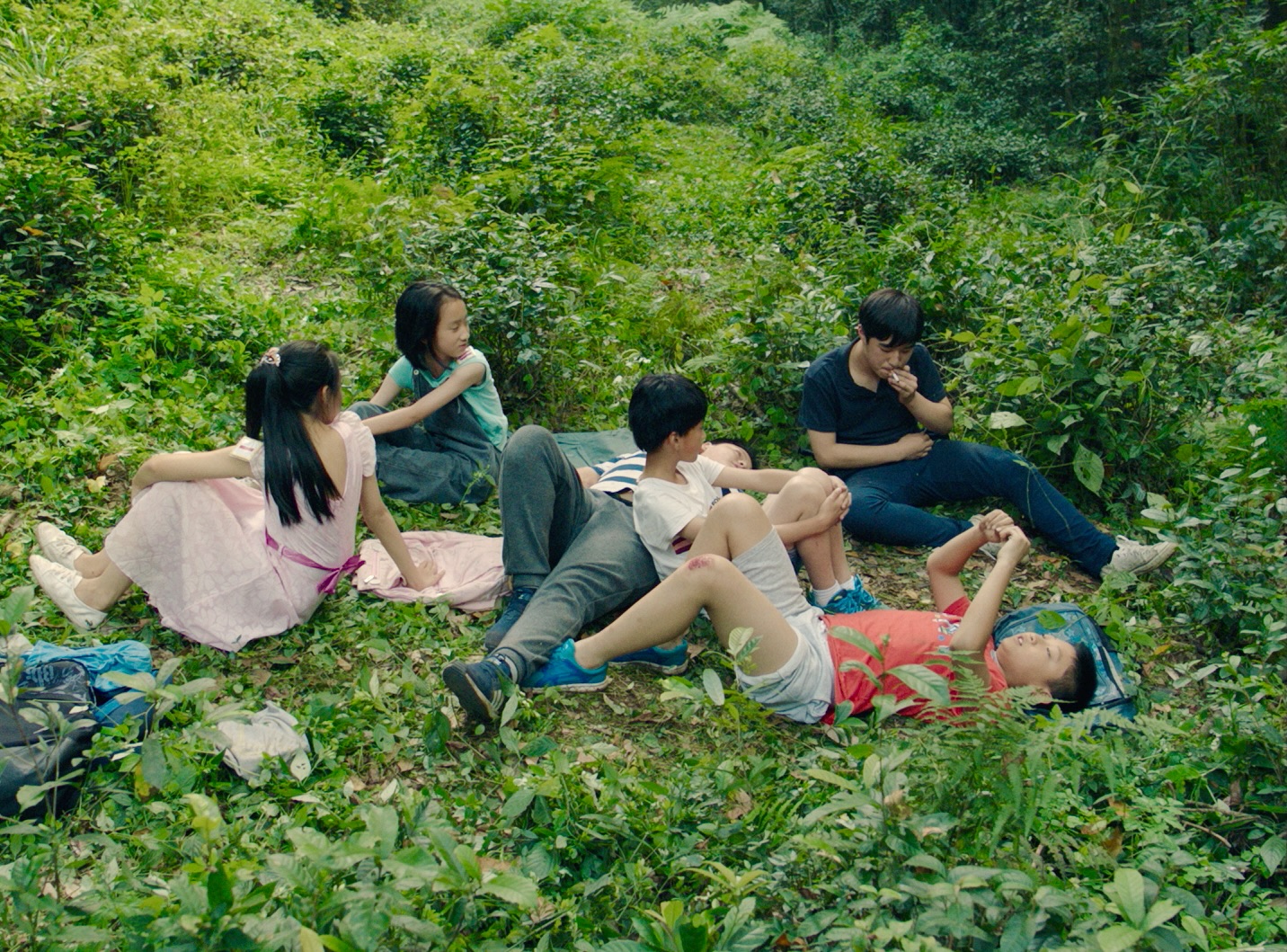
text Baihe Sun(IG)





